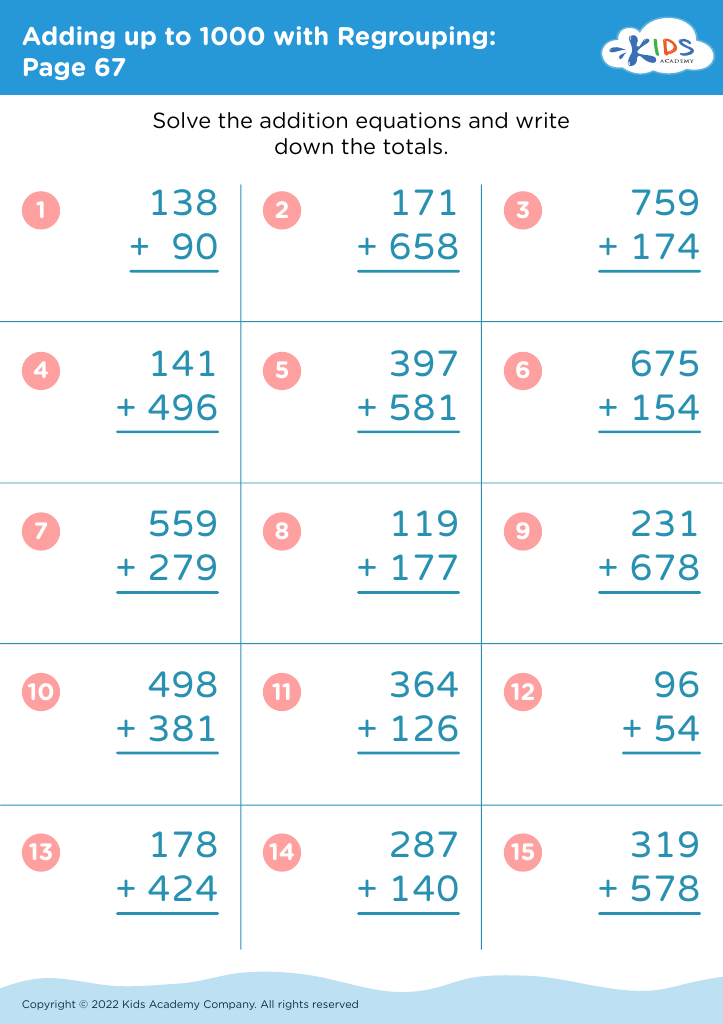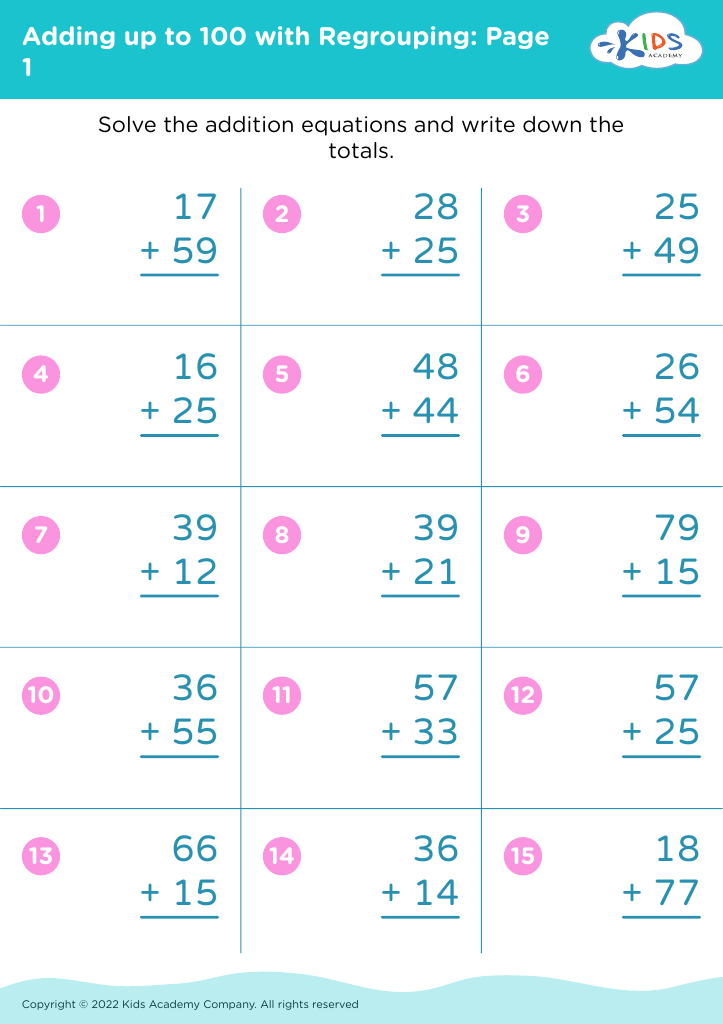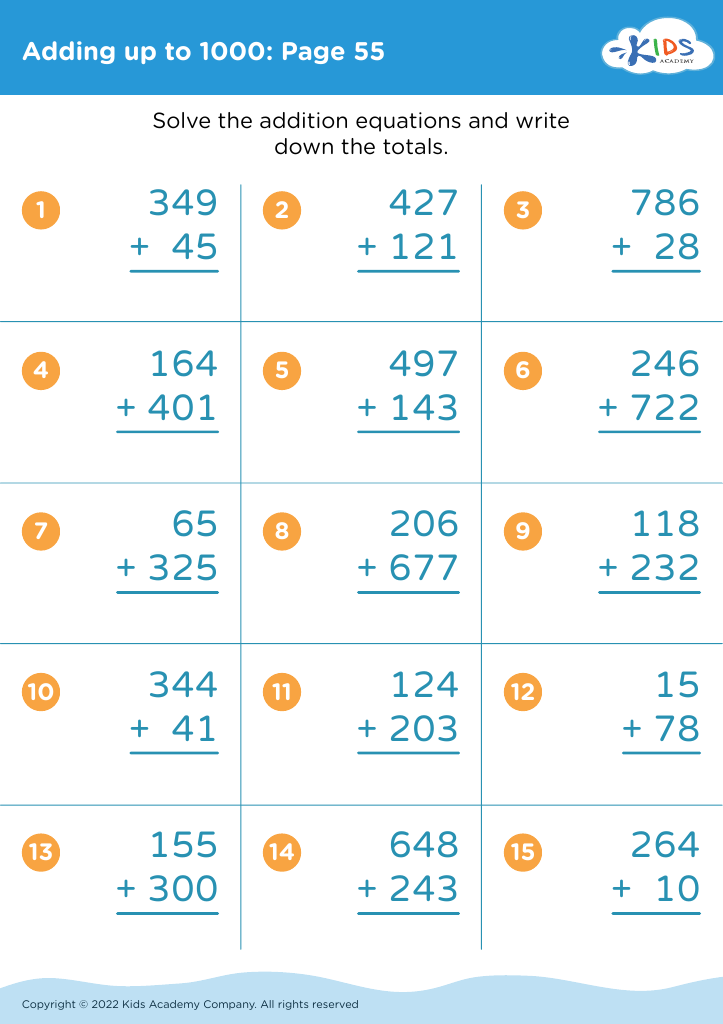Logical thinking development Addition & Subtraction Worksheets for Ages 7-8
10 filtered results
-
From - To
Boost your child's logical thinking with our dynamic Addition & Subtraction Worksheets, designed specifically for ages 7-8. These worksheets from Kids Academy transform learning into a fun, engaging experience. By practicing addition and subtraction, your child will enhance critical problem-solving skills that go beyond math, fostering strong cognitive development. Each worksheet is crafted to challenge young minds while maintaining an enjoyable learning atmosphere. Perfect for both classroom and home use, these activities ensure your child enjoys mastering math fundamentals in a logical and systematic way. Give your child the tools to succeed with our expertly designed, educational resources.
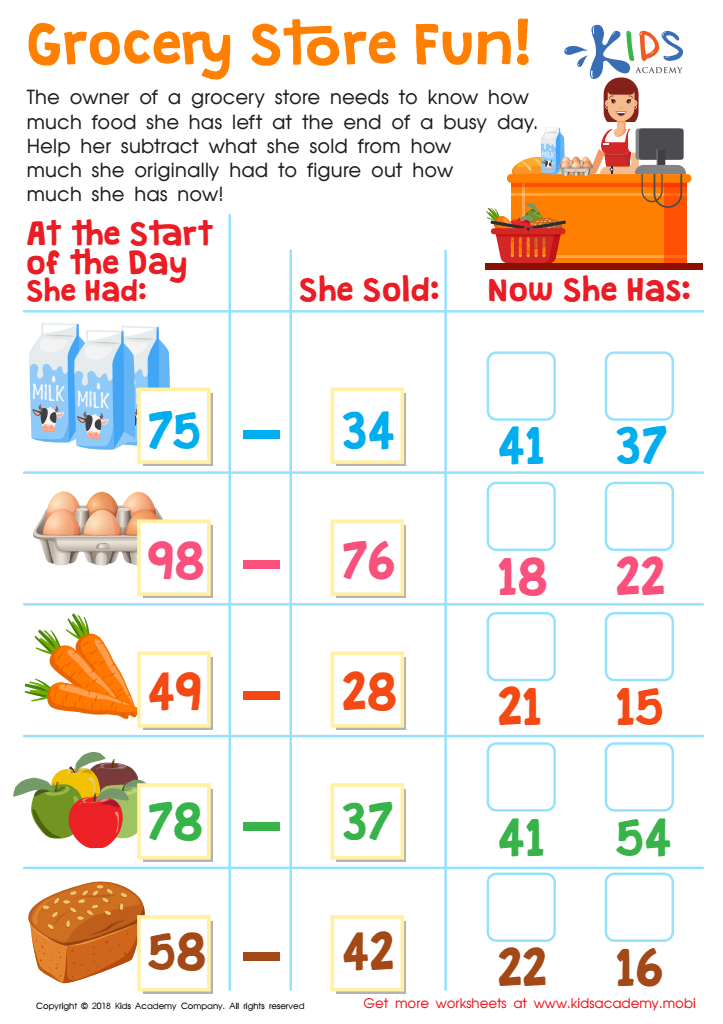

Grocery Store Fun! Worksheet
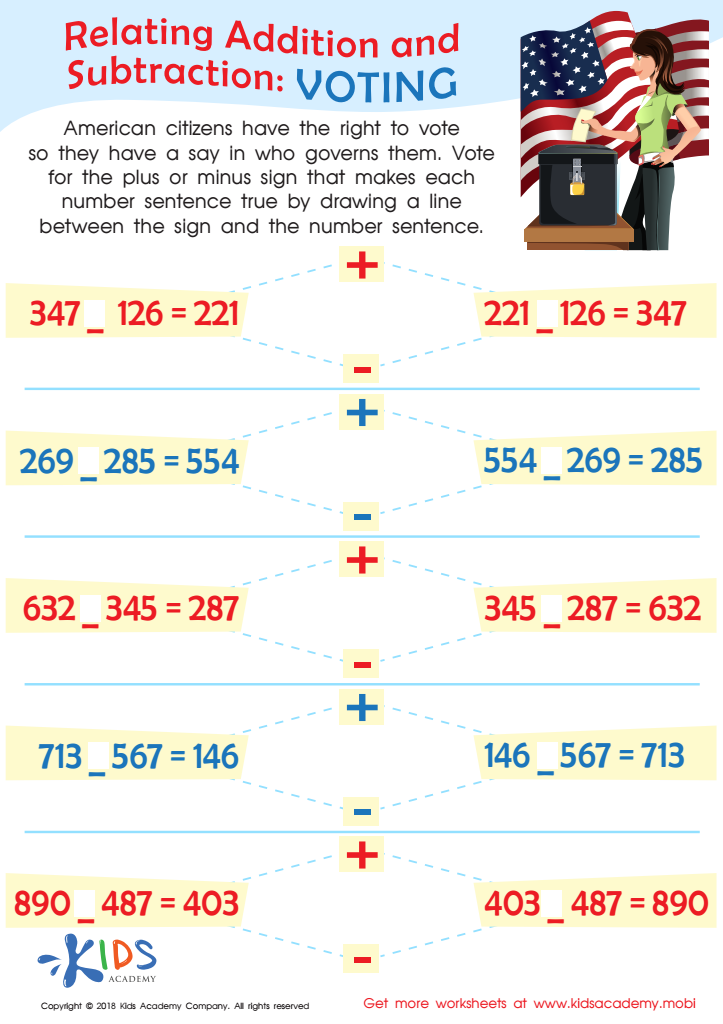

Voting Worksheet


Tricky Problems Worksheet: Part 2
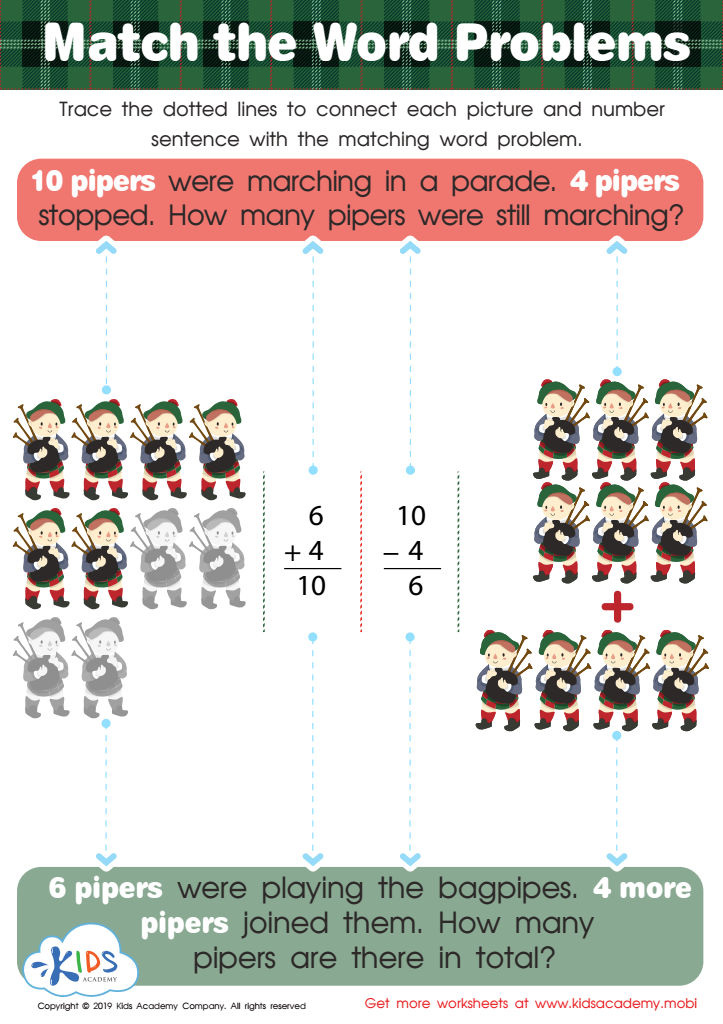

Match the Word Problems Worksheet
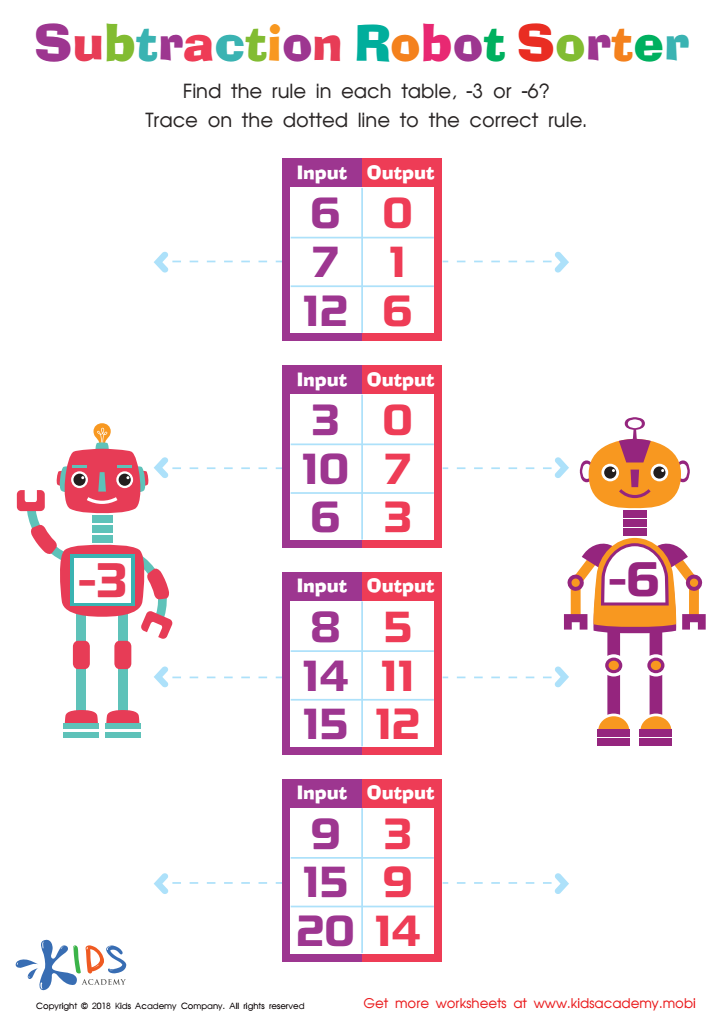

Subtraction Robot Sorter Worksheet
Logical thinking development, particularly in the realms of addition and subtraction, plays an essential role in the cognitive growth of children aged 7-8. At this stage, children's brains are rapidly developing their ability to reason, solve problems, and think abstractly. Mastering basic arithmetic equips them with vital skills that extend beyond mathematics, including pattern recognition, sequential thinking, and decision-making. These abilities form the foundation for more complex problem-solving tasks they will encounter later, not just in academics but in real-life situations.
Teachers and parents hold crucial roles in nurturing this development. Encouraging a child's proficiency in addition and subtraction helps them build confidence in their intellectual capabilities. Through practice, children learn to approach problems methodically, understanding the importance of steps and the value of correctness. This structured thinking approach helps them in other subjects, fostering a comprehensive educational experience.
Moreover, competence in these arithmetic fundamentals enables a smoother transition to more advanced mathematical concepts, such as multiplication, division, and fractions. Early struggles in basic arithmetic can hinder future learning, making subsequent stages of education more challenging. Therefore, by prioritizing logical thinking development in addition and subtraction for children aged 7-8, teachers and parents lay down the groundwork for lifelong learning and success.
 Assign to My Students
Assign to My Students



